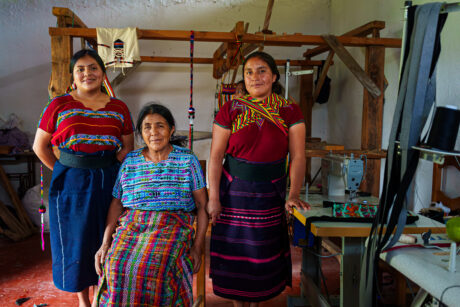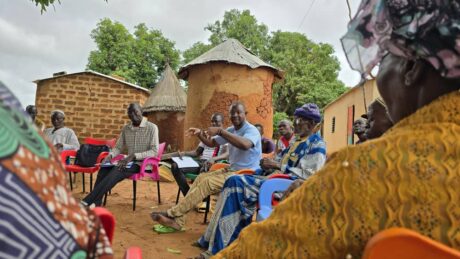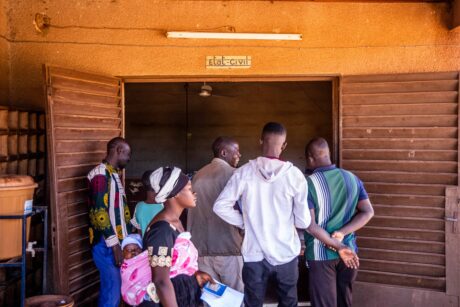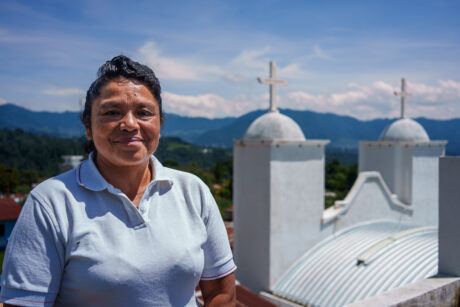The relationship between corruption and conflict was center stage at the recent International Anti-corruption Conference (IACC) in Vilnius, Lithuania. The conference theme, Confronting Global Threats, Standing Up for Integrity, put the spotlight on anti-corruption as it relates to key challenges from the climate crisis to kleptocrats (or “rule by thieves”) and violent conflict.
The vicious cycle between corruption, insecurity and conflict is not a new phenomenon, yet it is not fully understood and has historically received inadequate attention. One argument for this is that what is permissible gets murky during times of conflict. Corruption not only thrives in these spaces, our collective tolerance for it also increases.
Yet corrupt practices often fuel conditions that lead to conflict and can cause significant harm to communities and countries. Transparency International’s piece, The Fifth Column: Understanding the Relationship Between Corruption and Conflict, calls on development practitioners and security professionals to recognize tackling corruption as a top foreign and security policy priority.
Creative’s work in fragile contexts underscores the evidence that these issues are intertwined and the growing consensus that they should not be addressed in isolation. In fact, anti-corruption efforts should be conflict-sensitive so that practitioners are not inadvertently ignoring or exacerbating tensions, which requires a systems approach and thinking and working politically to understand local dynamics and actors.
There are real risks for harm given the inherent power shifts at play with anti-corruption initiatives. Creative’s programming recognizes this and works to prevent and address corruption, lack of transparency and accountability, and other governance deficits that lead to vulnerability, extremism and violence.
Improving responsive governance in Burkina Faso
Burkina Faso has faced two coups in recent years and faces rising threats of violent extremism. The USAID-funded Inclusive Governance for Resilience program brings together communities, civil society and government to address grievances and improve responsive governance.
This includes improving budget transparency, raising awareness of rights, combatting mis- and disinformation, addressing specific community grievances through roadmaps to resilience, and strengthening local open government partnership efforts.
Strengthening collaboration between formal and traditional institutions in Guatemala
In Guatemala, the new Arévalo administration faces intense expectations from citizens to respond to their demands and fulfill their promises to address endemic corruption and promote inclusive governance. The greatest citizen pressure comes from Indigenous groups, whose support was instrumental to the Movimiento Semilla party’s win and the ultimately successful transfer of power.
The USAID-funded Tejiendo Paz program is working with Mayan communities in the Western Highlands, and is planning on expanding to include Xinca, and Garífuna communities, to strengthen collaboration and information flows between traditional and formal institutions and actors around local conflicts and grievances.
Read more: Creating a path for water and peace
Improving transparency and accountability in Ethiopia
In Ethiopia, where peace is tenuous and civil society is working to protect newly opened space, the USAID-funded Ethiopia Civic Engagement Activity is strengthening capacity of local actors for collective action around fiscal transparency, working with formal and informal community structures to facilitate civic dialogue, public debates and social accountability activities for greater transparency and accountability.
Preventing corruption to promote peace
There is a great need to address underlying root causes and inequalities that drive conflict, focusing on violence prevention, anti-corruption and inclusive, responsive governance, all with a conflict-sensitivity and do no harm lens.
Ultimately, as the Vilnius Declaration states, “preventing corruption will also minimize global insecurity, violence, and conflicts since they are deeply interconnected. Violent conflicts and crises benefit kleptocrats and their accomplices, creating chaos which acts as a cover for corruption and causes immeasurable harm.”
Addressing this requires joining forces among journalists, academics, development practitioners, activists and those working on security and stabilization to tackle these issues across sectors and borders, and to do so in conflict sensitive ways.



